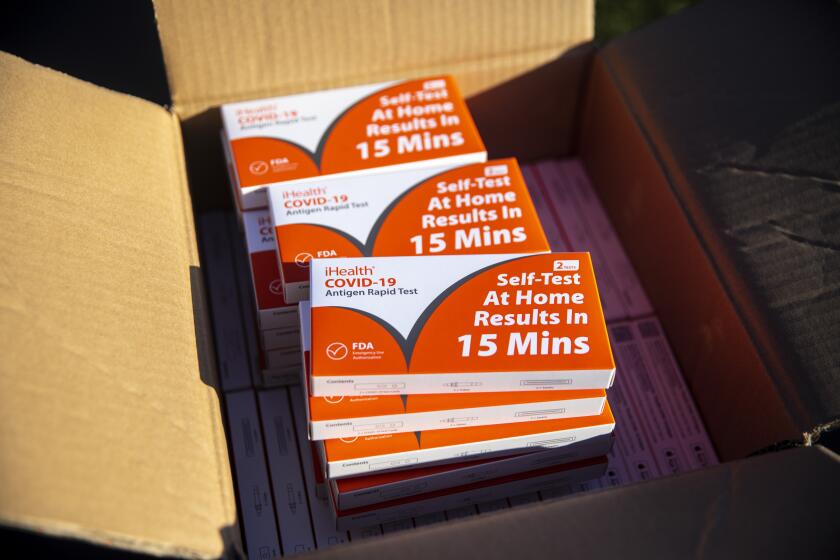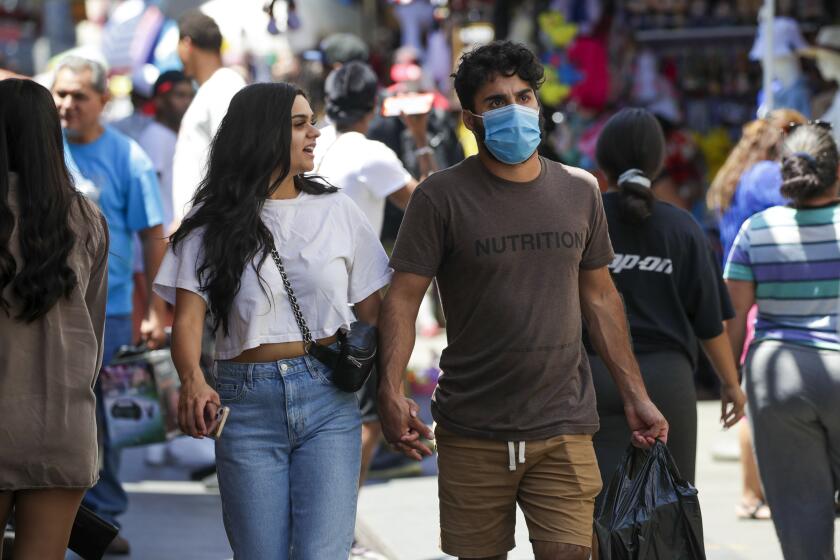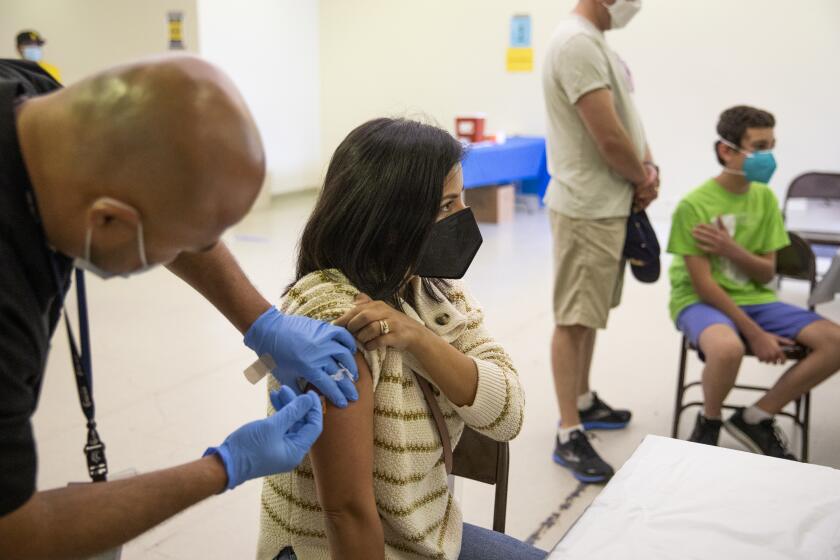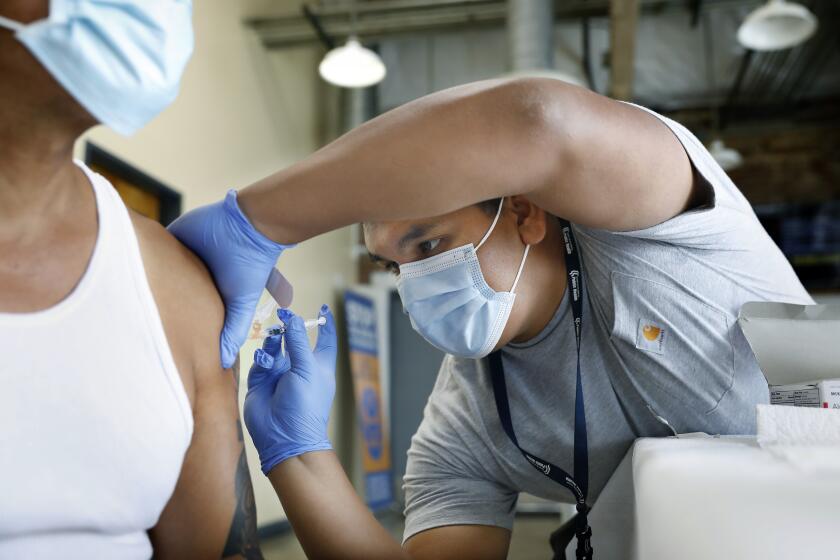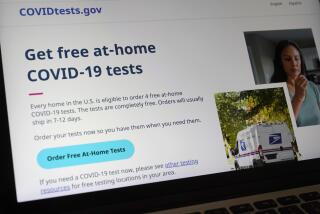Free at-home COVID tests, delivered by mail, ending this week
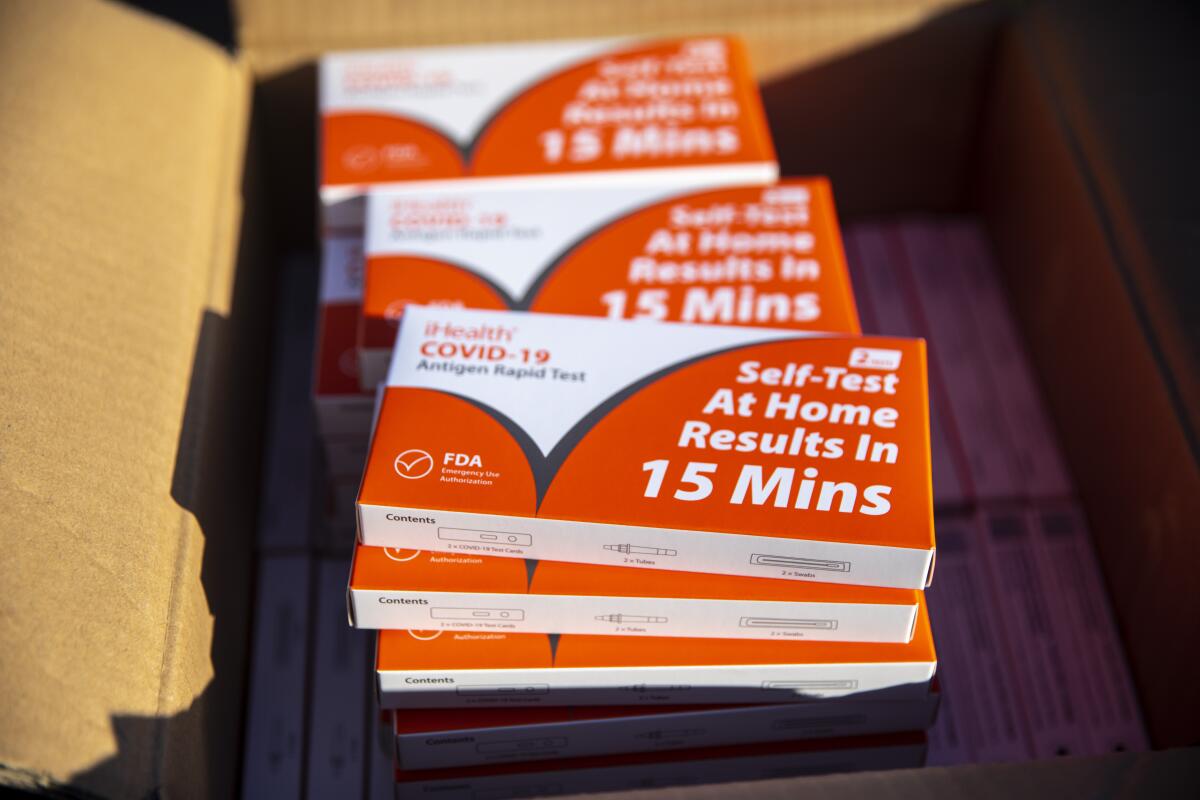
- Share via
A nationwide program that allowed residents to order batches of free at-home coronavirus tests through the U.S. Postal Service is coming to an end this week, leaving Californians just days to secure any final shipments.
Suspending the offering, which the COVID.gov website says is “because Congress hasn’t provided additional funding to replenish the nation’s stockpile,” will remove one convenient testing option even as federal officials continue to tout its importance and say residents should use multiple kits to screen for coronavirus infection.
The action does not appear to affect a separate program that allows insured people to get reimbursed for a certain number of at-home rapid tests every month.
Using an online portal that launched in January, households were able to have up to three shipments of tests delivered to their homes for free. The rapid antigen tests were self-administered and could deliver results within minutes.
Health officials stress that at-home tests are a vital and accurate way of tracking COVID-19 infections but an initial negative test doesn’t mean people are out of the woods.
A first round, of four tests, began shipping in January, followed by a second tranche of four tests in March and a third of eight tests in May.
Ordering through the program will be suspended Friday, according to the federal website, but residents who haven’t maxed out their household allotment can still make orders until then at special.usps.com/testkits or by calling (800) 232-0233. The TTY number is (888) 720-7489.
On its website this week, the U.S. Postal Service said households that had already placed two orders can place a third, which will contain eight tests.
Households that had placed only one order previously can place two more that will contain a total of 16 additional tests. Those who have yet to use the program at all can make three separate orders for a total of 24 tests.
Health officials recommend that anyone infected with the coronavirus isolate for at least 5 days — but for many, that timeline may be overly optimistic.
The Biden administration has previously warned that, absent additional congressional funding, some efforts to combat COVID-19 may have to be scaled back or paused.
“We went to Congress in the spring and said, ‘Look, we need resources to make sure we have plenty of vaccines and therapeutics for the fall and winter.’ Unfortunately, Congress did not come through with funding,” Dr. Ashish Jha, the White House COVID-19 response coordinator, said during a forum with the U.S. Chamber of Commerce this month.
Jha said the administration has prioritized available dollars to secure vaccine doses for the fall and winter, when some experts expect another coronavirus wave could strike.
“Late spring into summer, we saw Germany, we saw the U.K., we saw all of these countries buying vaccines for the fall and winter, and we weren’t even really in negotiations with these companies,” Jha said. “And we said, ‘Well, that’s unacceptable. We’ve got to act.’ So we have taken money from other really important priorities, like having a stockpile of tests and having a stockpile of personal protective equipment, PPE, took those dollars and put them into buying vaccines for the fall and winter because time was running out.”
The pending arrival of an Omicron booster shot marks an ambitious new phase in the nation’s vaccination campaign before a possible new COVID surge.
The U.S. is also gearing up for the next phase of its COVID-19 vaccination campaign, which could begin as soon as next month and feature new booster shots designed specifically to combat the super-infectious BA.4 and BA.5 subvariants of the Omicron coronavirus family.
Even with this particular federal program going offline for now, there are still ways for Californians to check their coronavirus status. At-home kits are widely available for purchase, and select pharmacy chains — including CVS, Rite Aid and Walgreens — continue to offer testing services.
Some communities and health centers also are still running testing clinics. To search for locations near you, visit myturn.ca.gov/testing.
Additionally, those with health insurance can purchase over-the-counter diagnostic tests at low or no cost — with the charge either covered directly at the point of sale or eligible for reimbursement later. For more information on that process, visit cms.gov/how-to-get-your-at-home-OTC-COVID-19-test-for-free and check with your insurer.
Health experts are noting that more people who are experiencing very mild illness are working anyway — exacerbating the coronavirus transmission risk.
Each person who has health insurance can be reimbursed by their insurer for up to eight tests per month. (Because some test kits have two tests per box, this equals four boxes a month per person covered by the insurance plan.)
This means that every month, a family of four can get 32 tests at no cost, with the cost reimbursed by their insurer. People may have to file paperwork to request the reimbursement.
More to Read
Sign up for Essential California
The most important California stories and recommendations in your inbox every morning.
You may occasionally receive promotional content from the Los Angeles Times.
